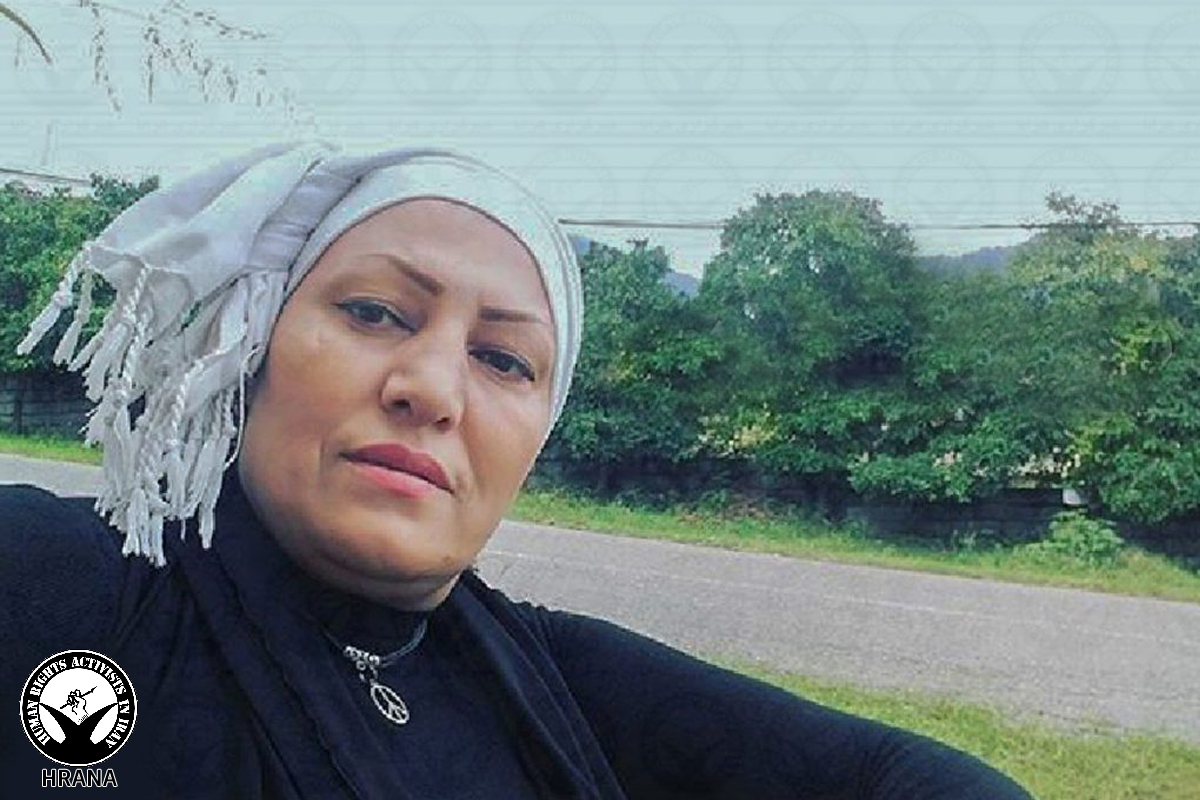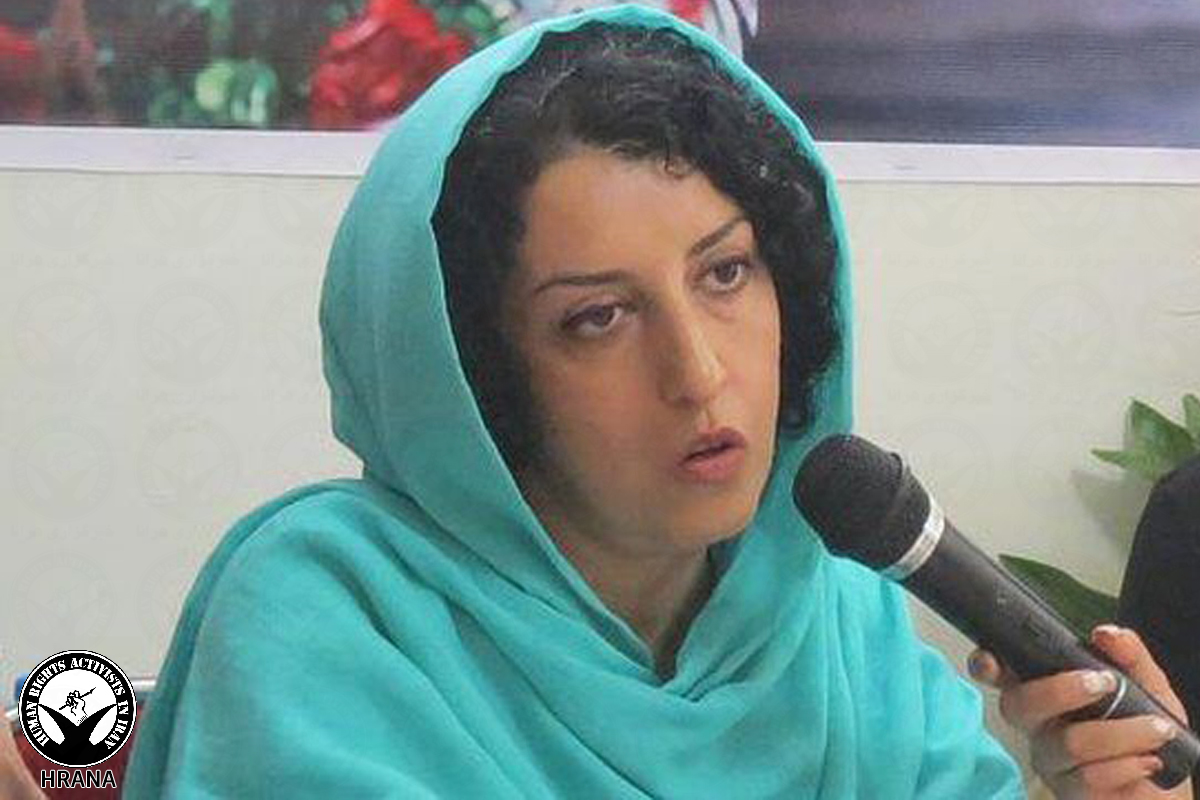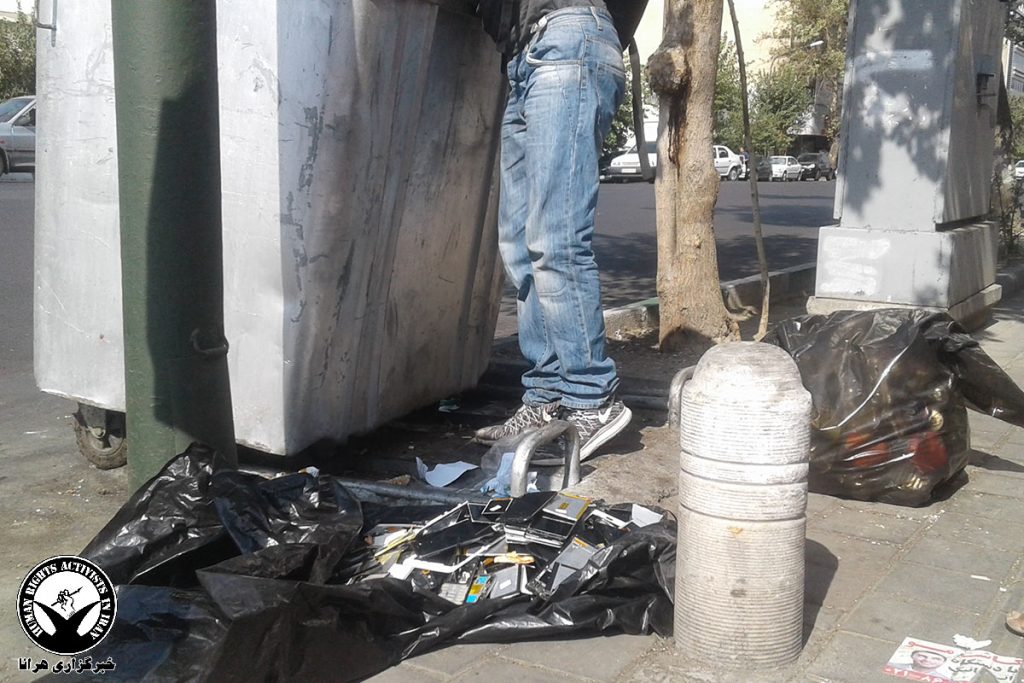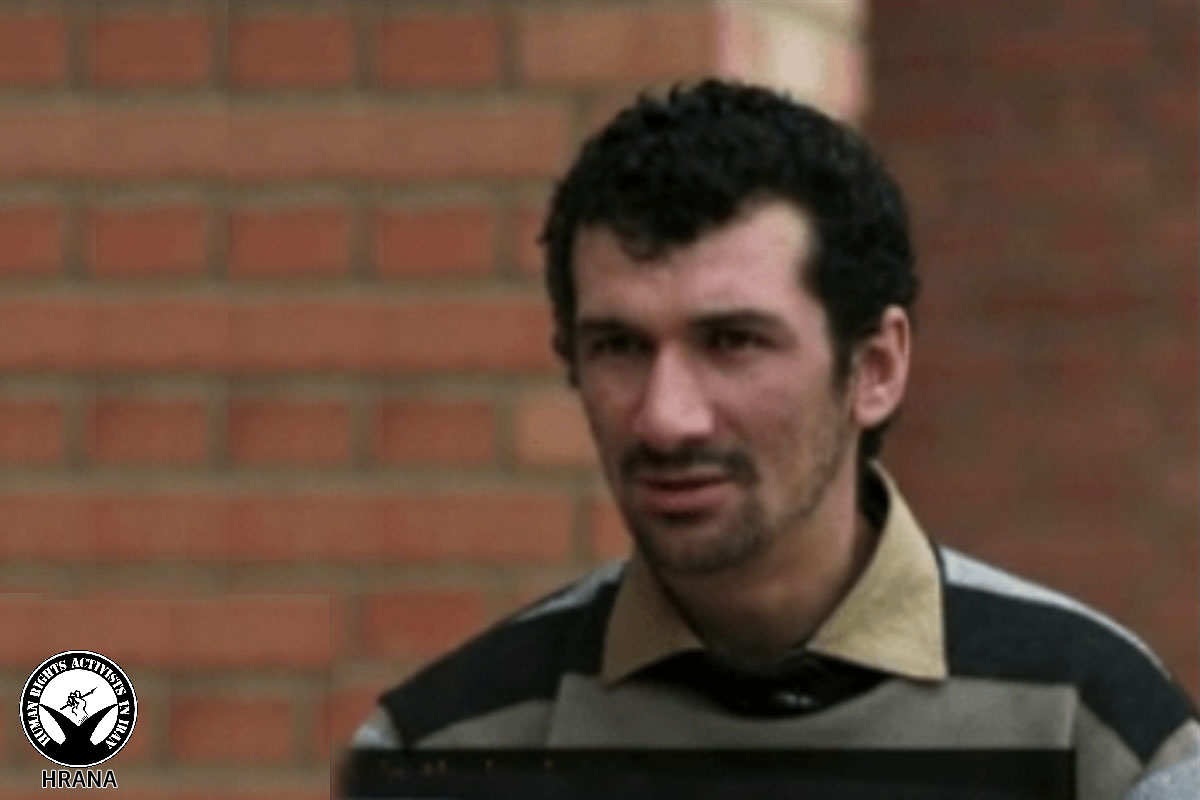Human Rights Activists News Agency (HRANA) – For years, piles of giant parcels could be seen on the street corners of almost every Iranian metropolis, each representing the bounty of a few hours of foraging. A morning stroll in the city reveals “dumpster divers” hunched over almost every visible waste bin, toiling in the day at what used to be a moonlight gig. Now, this mainstay of urban culture is coming under fire for its poor regulation, safety hazards, incorporation of child labor, and–in the current economic crisis– its rapid expansion into smaller cities.
Many of Iran’s municipalities have on payroll designated foragers of recyclable goods, who often work in deplorable conditions and have been known to outsource this work to young children. In cities like Abadan and Khorramshahr, dumpster divers have become enmeshed in the fabric of the city, all while a creeping trend of privatization has heightened both its precarity for workers and its appeal for would-be entrepreneurs that are hiring them.

Labor activist *Mehrdad spoke to HRANA about the society’s low bar on working conditions for child foragers who aren’t even of age. “All of them suffer from a host of skin, digestive, and respiratory conditions,” Mehrdad said, identifying basic gear like gloves, masks, or protective uniforms as virtually-unheard-of commodities. “What’s worse, instead of telling our municipalities that these children should not be employed– that we need to abolish child labor and think about their welfare–we’re fighting for improved sanitary conditions, and to protect them from sexual harassment.”
Off-the-rolls workers–especially children–are not entitled to complain about their conditions, let alone expect better. Mehrdad said that many of these foragers make do, and even spend the night, in factories and storage spaces used for waste separation. “Obviously, these children work in a contaminated environment.”
Journalists, along with children’s’ rights and civil rights activists, have drawn attention to a burgeoning “garbage mafia” that exploits those willing to accept paltry wages, such as freelance dumpster divers and children.
While waste management officials in some cities have maintained management of the foraging sector and verbally committed to refining the rights and status of these workers–like the waste management office supervisor of the city of Zanjan, who has promised them ID cards and more organized labor administration–such supports have a low chance of survival in an environment of economic downturn and unregulated outsourcing.

Indeed, Mehrdad attributes the recent spike in dumpster diving to Iran’s new wave of economic crisis. “Within the last year, the hard-working class of society has become poorer […] the unemployed have have taken to dumpster diving, while the employed recruit their own kids to do it. Dumpster diving is the last resort of a working class struggling to stay afloat.”
Two months ago, a Hamedan city councilman announced that 550 dumpster divers were active in that city. Disheveled and dressed in dirty clothes, they roam encumbered by large bags of paper, plastic, and metal cans. According to one children’s rights activist studying the child foragers of Tehran, child dumpster divers are expected to collect an average of 170 pounds of recyclables daily, a quota they must trek miles across the city to meet.
These children may be outsourced by contractors, who themselves are managed–and paid–by the city. “What’s awful about it,” said Mehrdad, “is that the municipality and its contractors are capitalizing on their vulnerability.”
Foragers in larger cities won’t necessarily fare better. “The conditions for such children outside the capital, if not harder than in Tehran, aren’t any better. At least in Tehran there’s some media coverage on dumpster divers. In smaller cities, hardly anyone talks about them.”

While article 7 of Iran’s Declaration of Citizenship Rights mandates that “all citizens enjoy equal access to human dignity and the benefits prescribed in laws and regulations,” city councils and municipal authorities in affected cities have yet to make concrete strides toward the protection of the human dignity of foragers. On the contrary, several municipalities have reportedly evaded accountability for underage citizens working in the workshops and waste separation centers of their cities, repeatedly deferring to the very contractors they hire and supervise. “The root of the issue is that these contractors win the municipality’s bidding process by offering the lowest price, and compensate for this low fare by mining the cheap labor pool of children and poor individuals,” said Mehrdad, who anticipates that dumpster diving will remain on the rise until a labor law makes these issues explicit, and is pushed to implementation with considerable pressure from the Iranian people.
Privatization, according to Mehrdad, is the scourge of the freelance forager. “Conditions for dumpster divers was bad enough in the past, but privatization, and the issuing of permits by contractors, have turned the situation downright deplorable. Where some foragers were able to work independently before, now contractors have monopoly on the market and are free to enforce their own restrictions.” Contractors hired by the municipality currently have no legal responsibility to address these issues.

As this HRANA reporter has observed, as long as municipalities skirt their responsibilities of contractor oversight, the number of dumpster divers–along with their quotas, pressures, and hazards–will steadily climb. The voices of these working citizens, for now, are drowned out by financial crisis and political turmoil.
* Mehrdad’s last name was not published due to safety reasons.

















